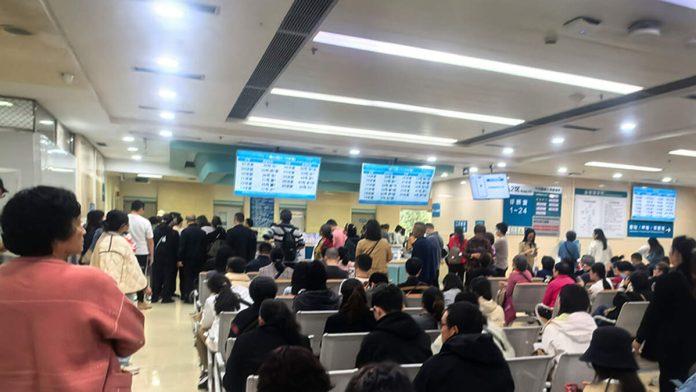Hospitals in China are grappling with a surge in respiratory illnesses reminiscent of the early days of the COVID-19 pandemic. The outbreak, which began in October, has led to overcrowded hospitals, particularly affecting vulnerable groups such as children and the elderly. The World Health Organization (WHO) noted the rise in cases in a November bulletin, prompting China’s National Disease Control and Prevention Administration (NCDPA) to implement a monitoring system for pneumonia of unknown origin.
Despite social media reports of overwhelmed hospitals, no official confirmation has been made regarding the severity of the situation. The NCDPA reported a significant increase in respiratory infections between December 16 and 22, with new protocols requiring labs to report infections and control agencies to manage cases.
The outbreak is suspected to be linked to human metapneumovirus (HMPV), a virus that causes mild to moderate flu-like symptoms but can lead to severe conditions in children and the elderly. Like other respiratory viruses like RSV, HMPV spreads through respiratory droplets and close contact. Unlike COVID-19, there is no vaccine or antiviral treatment for HMPV.
The regular flu is a major contributor to the outbreak, with 30 percent of tests returning positive for influenza. The Chinese Center for Disease Control and Prevention noted that flu-like illnesses accounted for 7.2 percent of outpatient visits in northern provinces and 5.7 percent in southern provinces by the end of December.
The Chinese government and WHO have yet to address the situation publicly.

Recent Comments